The Irishman (2019)
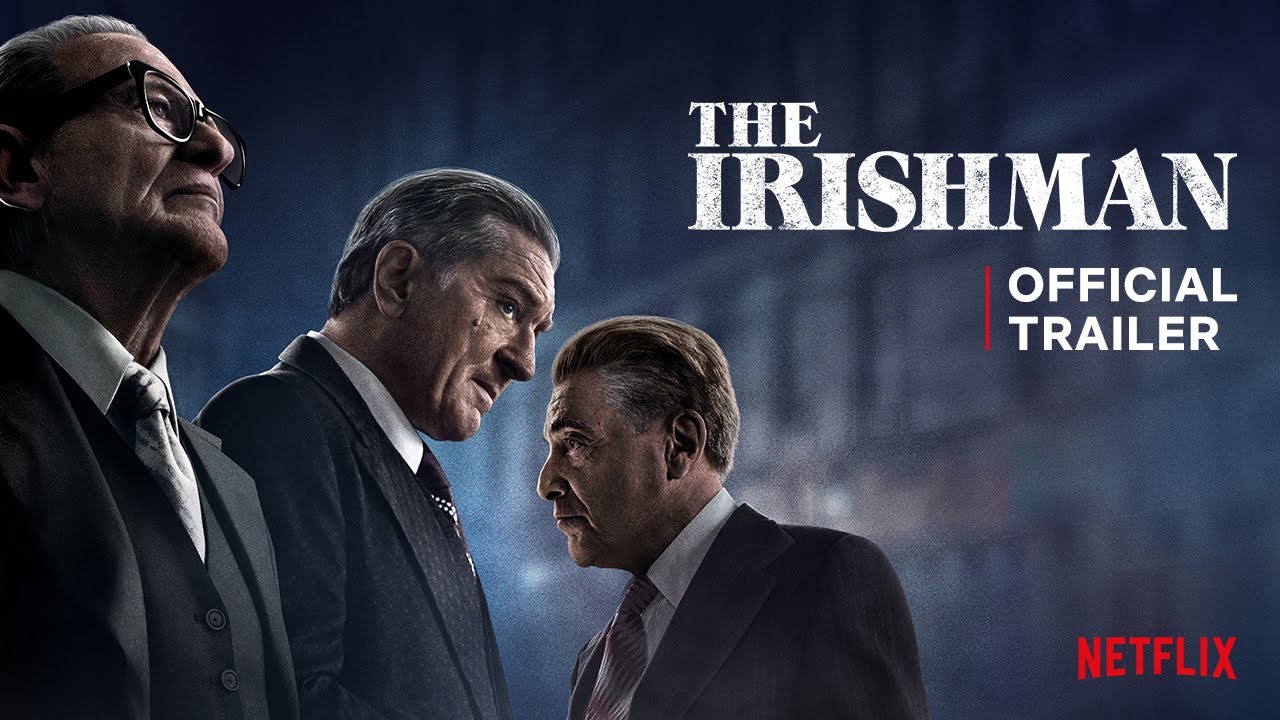
The Irishman (2019), directed by Martin Scorsese, is an epic crime drama that spans several decades, chronicling the rise and fall of Frank Sheeran, a truck driver turned hitman involved in the world of organized crime. Based on the book I Heard You Paint Houses by Charles Brandt, the film is a reflection on aging, guilt, and the price of loyalty, centered around Sheeran’s relationships with infamous figures such as Jimmy Hoffa (Al Pacino) and Russell Bufalino (Joe Pesci). With a star-studded cast, including Robert De Niro as Frank Sheeran, the film is a monumental exploration of the consequences of a life lived in service to crime, with Scorsese’s signature mix of violence, dark humor, and philosophical musings.
The film opens with an older Frank Sheeran (De Niro), now in his 80s, reflecting on his life from a nursing home. He begins to recount the story of his involvement in organized crime, particularly his connection to the Teamsters union and the mysterious disappearance of union leader Jimmy Hoffa. Through Frank’s eyes, the film weaves a tale of betrayal, power, and regret, exploring how his loyalty to the mob and to Hoffa shaped the trajectory of his life.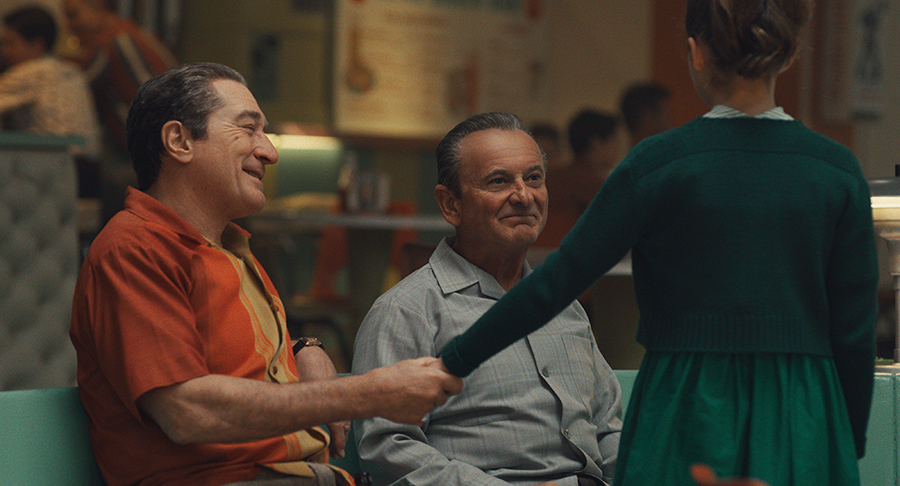
Frank’s entry into the world of organized crime comes through his relationship with Russell Bufalino, a powerful mob boss from Pennsylvania, played by Joe Pesci in one of his most understated performances. Russell is a calculating and reserved figure, in stark contrast to the bombastic and larger-than-life Hoffa, whom Frank becomes close to over the years. Al Pacino’s portrayal of Hoffa is a dynamic one, capturing the fiery, charismatic, and ultimately tragic nature of the character. Hoffa’s disappearance remains one of the great unsolved mysteries in American history, and Pacino’s portrayal of the union leader is one of the film’s most compelling aspects.
The central dynamic in The Irishman is Frank’s evolving relationship with Hoffa. Initially, Frank is a loyal soldier in Hoffa’s army, helping him navigate the treacherous world of union politics. However, as Hoffa’s power grows, so too does the tension between him and the mob, which leads to a series of betrayals and, ultimately, Hoffa’s violent disappearance. Frank’s position as an enforcer for the mob and his loyalty to Hoffa put him in a position where he is forced to choose between his friendship with Hoffa and his duty to Russell and the mob.
The film is notable for its use of de-aging technology, wh
ich allows De Niro, Pacino, and Pesci to portray their characters at various stages of life, from young men in the 1950s to elderly figures in the 2000s. While the technology is not always flawless, it adds an interesting layer to the narrative, visually representing the passage of time and the characters’ evolving roles in the world of crime.
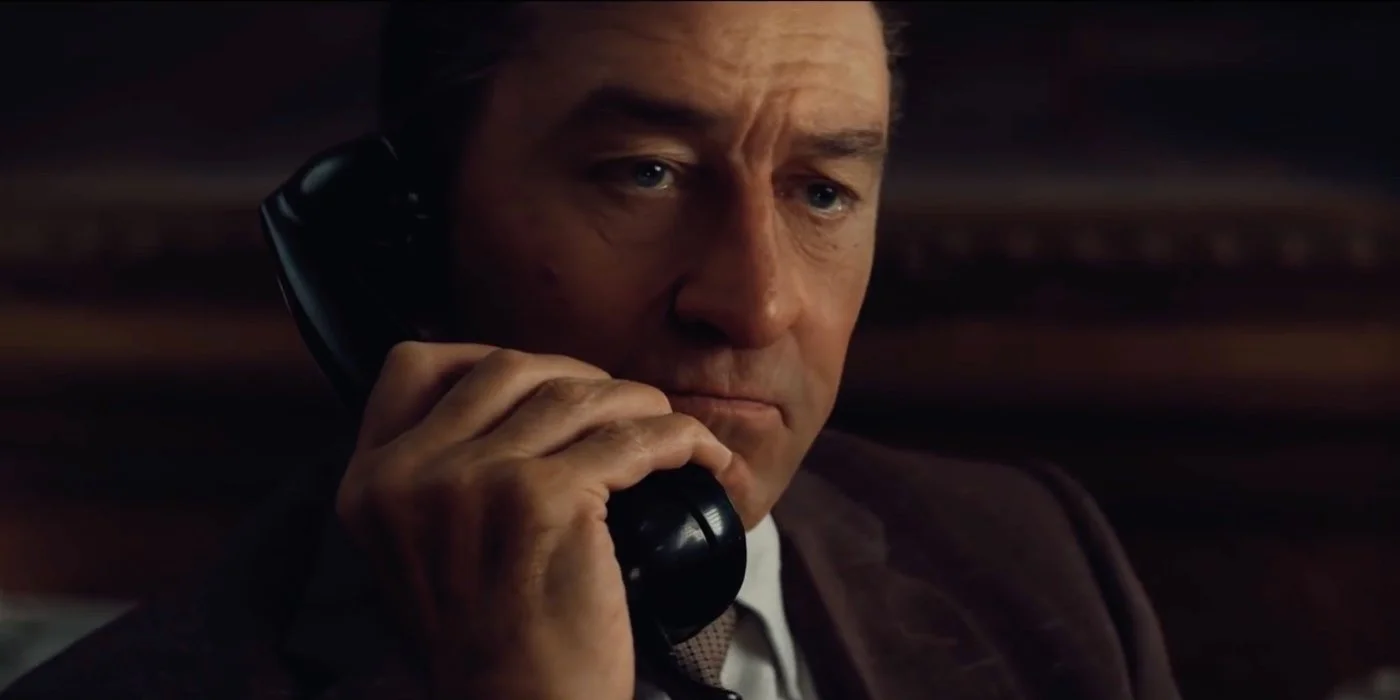
One of the most striking aspects of The Irishman is its meditation on time, aging, and mortality. As Frank grows older, the film becomes increasingly reflective, with Frank confronting the choices he made in his youth and the weight of the lives he took. The film is filled with moments of introspection, as Frank reflects on his actions, often in the quiet of his nursing home room, where he spends his days alone and disconnected from the world he once inhabited. This sense of isolation is amplified by the long, often lingering shots that Scorsese uses, which emphasize Frank’s solitude and the emotional distance between him and those he once knew.
The pacing of The Irishman is deliberate and measured, allowing the viewer to sink into the long, sweeping narrative. At nearly three and a half hours, the film demands patience, but the time spent with the characters is rewarding. Scorsese takes his time to flesh out the relationships between Frank, Hoffa, and Russell, giving each character room to develop, while also showing the evolution of organized crime and its impact on American society.
The film also stands as a reflection on the moral cost of loyalty and the corrupting nature of power. As Frank rises through the ranks of the mob, he becomes increasingly numb to the violence and betrayal around him, a theme that echoes throughout Scorsese’s work. The Irishman suggests that, for those in the world of organized crime, loyalty is often a one-way street, and those who serve the powerful eventually face the consequences of their actions.
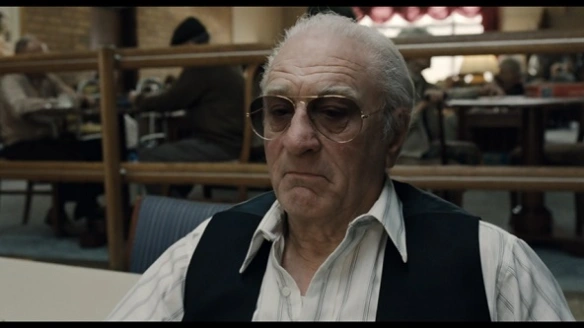
The cinematography by Rodrigo Prieto is stark and often cold, with muted colors that underscore the bleakness of the characters’ lives. The long, meditative shots are often accompanied by a minimalistic score by Robbie Robertson, which adds to the film’s reflective tone. The use of lighting and framing helps to emphasize the passage of time and the isolation of the characters, particularly as Frank grows older.
The film is also notable for its quiet, understated performances. While De Niro, Pacino, and Pesci have delivered iconic performances in Scorsese’s previous films, in The Irishman, their roles are more subdued, and their power comes from restraint rather than bombast. This gives the film a different energy compared to some of Scorsese’s earlier crime films like Goodfellas or Casino, where characters were often driven by explosive emotions. In The Irishman, the violence is quieter, and the stakes are more existential.
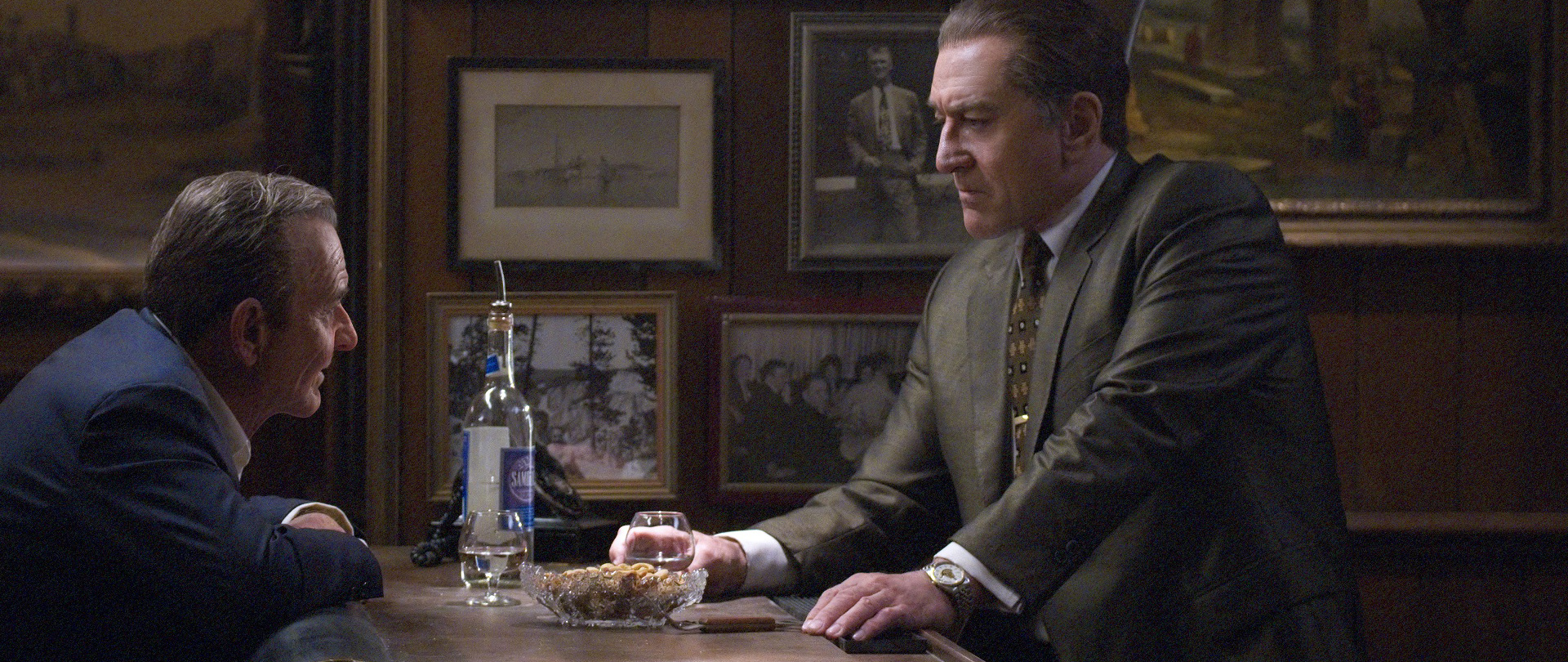
Ultimately, The Irishman is a reflection on the passage of time and the choices we make in life. It is a meditation on the inevitable consequences of those choices, particularly in the context of organized crime, where violence and betrayal are constants. The film does not offer easy answers or redemption for its characters, but rather presents them as products of their circumstances, shaped by loyalty, fear, and the corrupting nature of power. It is a deeply introspective film, one that acknowledges the human cost of a life lived in the shadows.
In conclusion, The Irishman is a masterfully crafted film, combining Scorsese’s sharp storytelling with poignant reflections on time, loyalty, and mortality. The performances by De Niro, Pacino, and Pesci are exceptional, and the film’s contemplative pacing allows the viewer to fully immerse in the world of organized crime. While it may lack the kinetic energy of Scorsese’s earlier works, The Irishman is a fitting, elegiac farewell to the gangster genre, offering a sobering reflection on the legacy of a life of crime.











